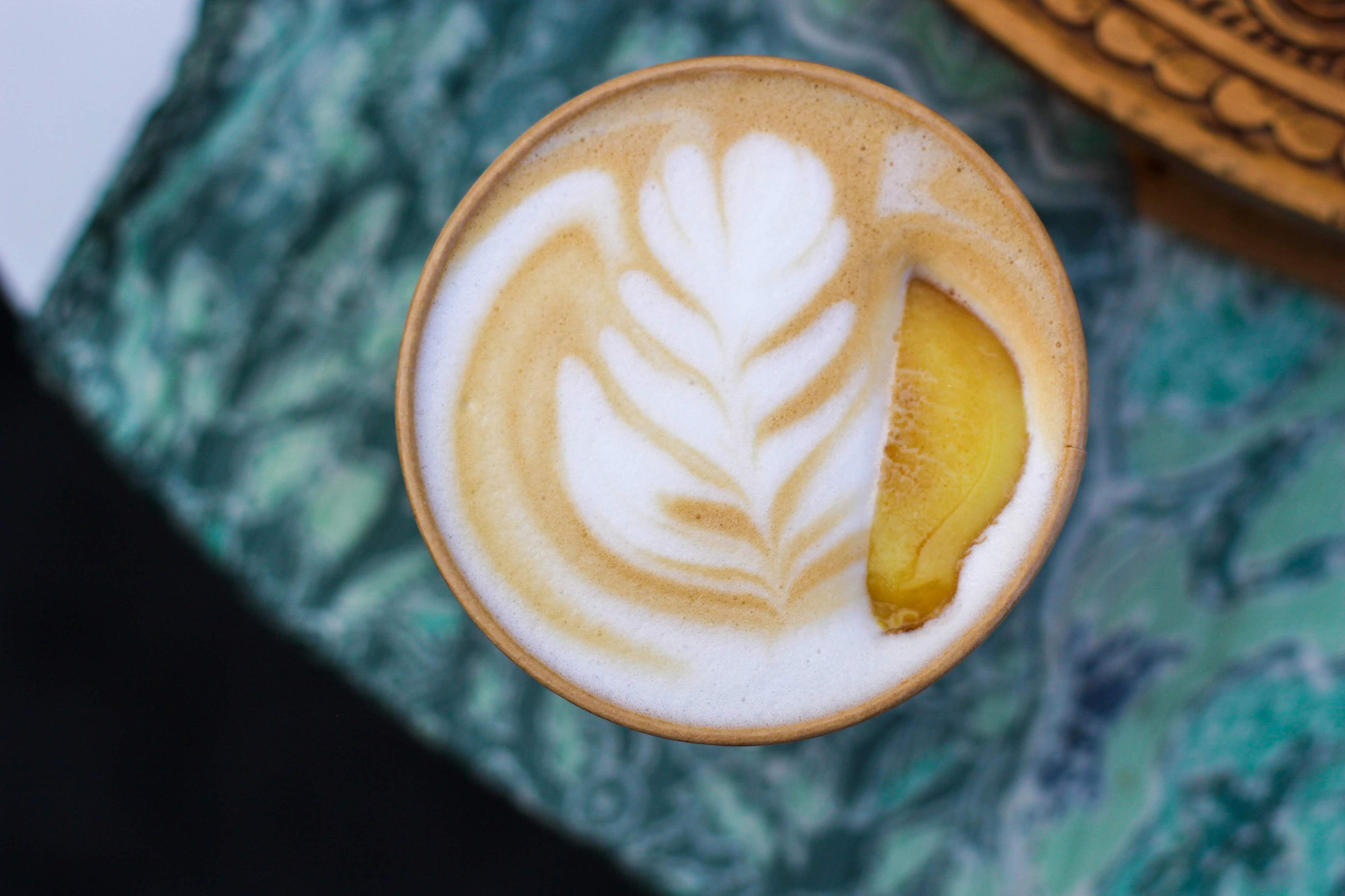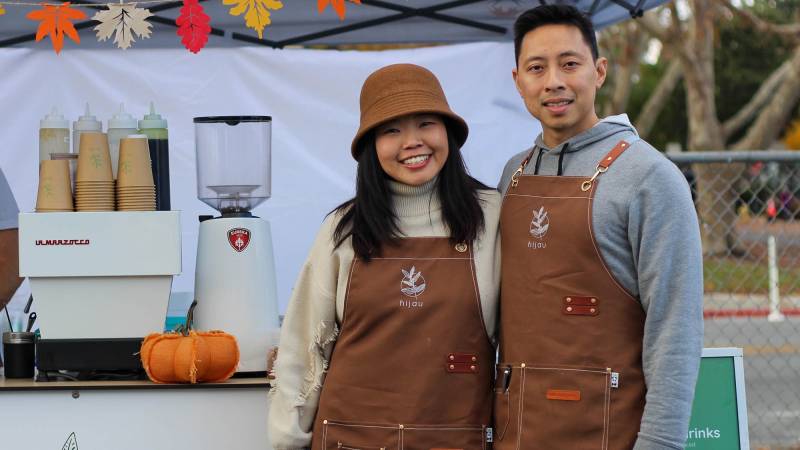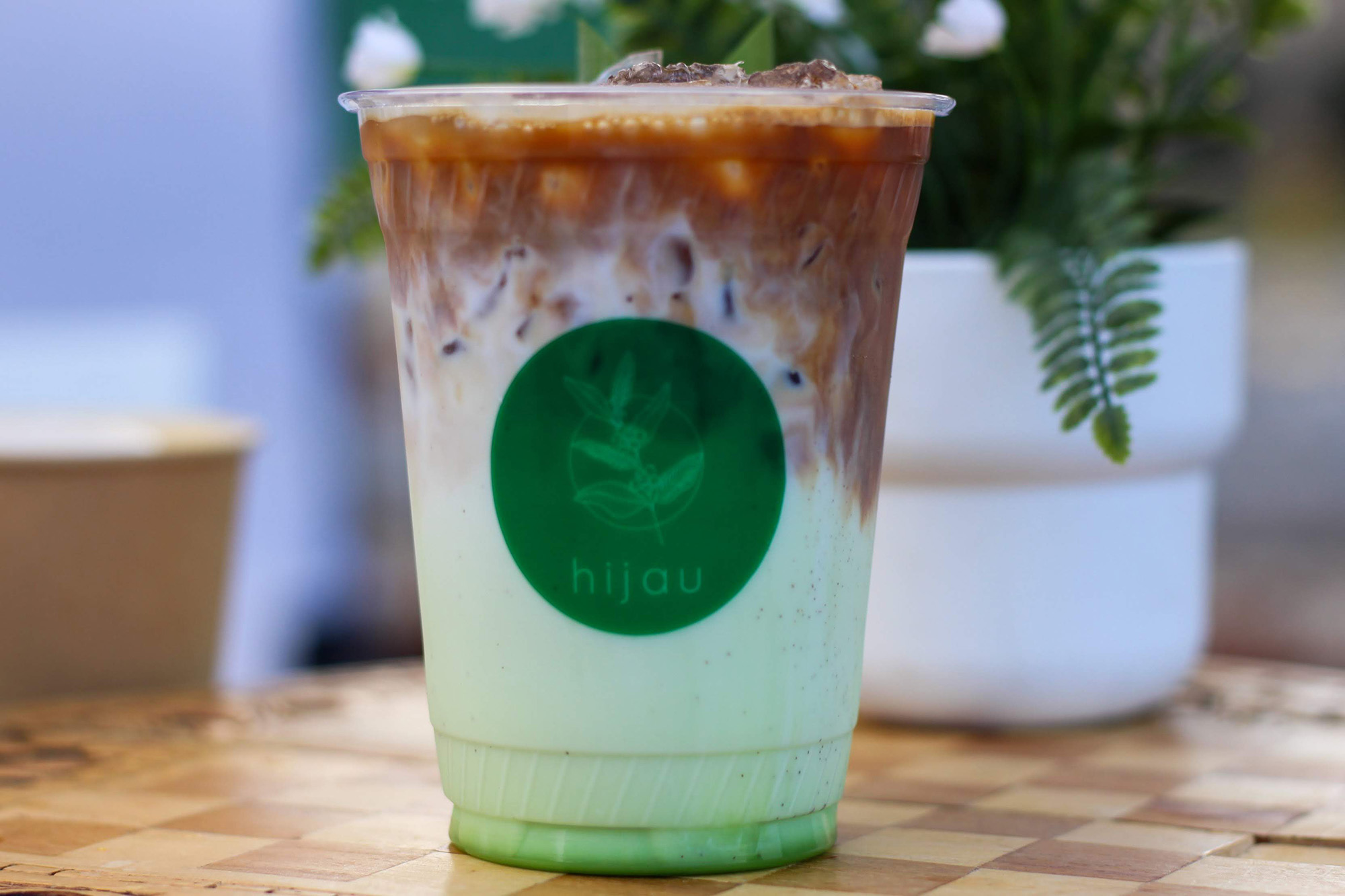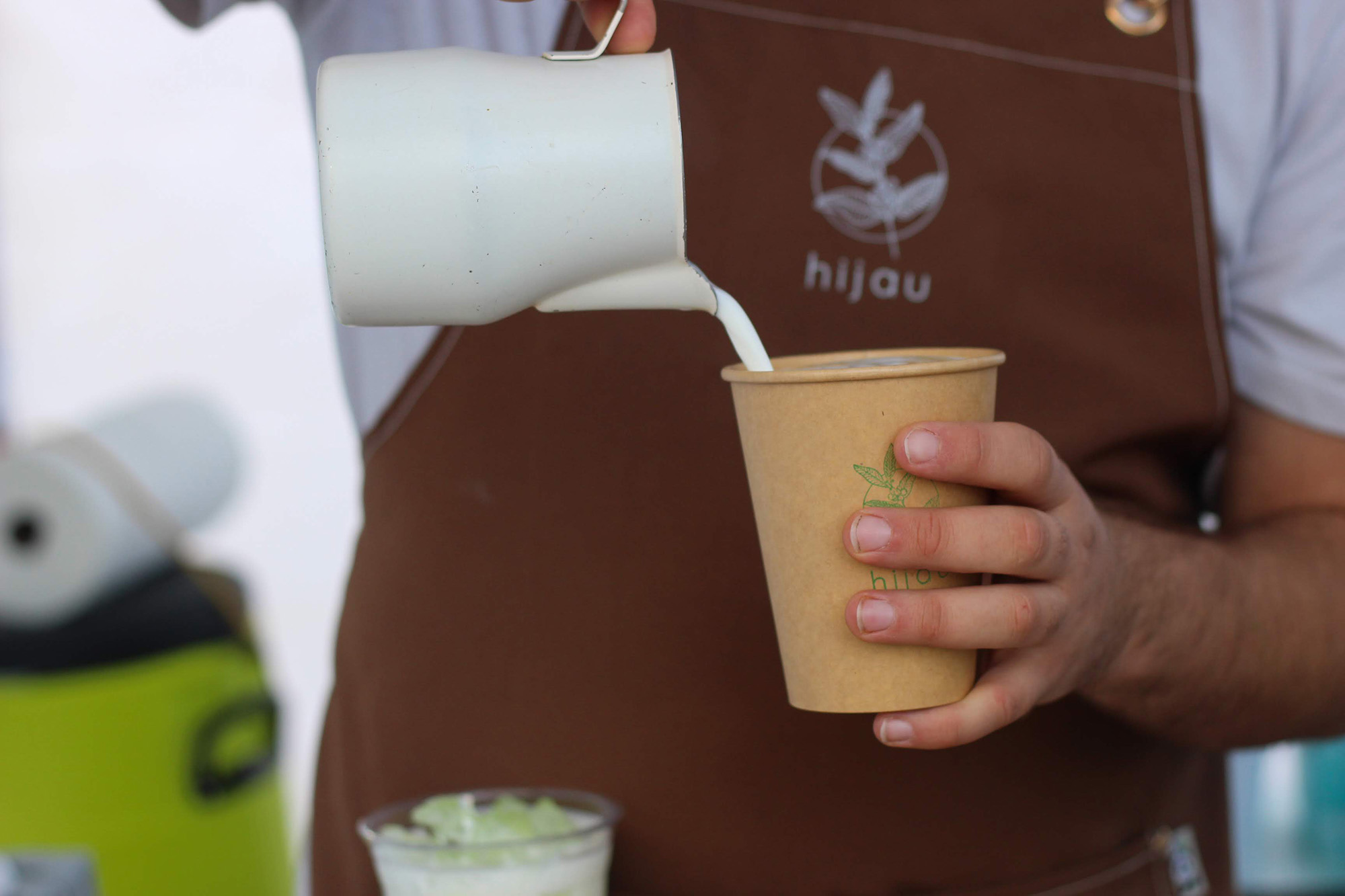Indonesian coffee shops are sprouting up in the Bay Area, introducing local caffeine hounds to aromatic, uniquely tropical drinks. The newest addition to the scene is Hijau, a coffee pop-up in San Jose known for crafting lattes with flavors like pineapple, coconut, lemongrass and ginger.
South Bay residents Lisa Maria and Ryan Prawiradjaja started Hijau in February of 2024. Maria was born and raised in Bekasi, the largest city in West Java, Indonesia, and immigrated to the United States 15 years ago for college. But when she was laid off from her job as a product manager at a tech startup last year, she decided to revisit an earlier dream. “I’ve always thought about starting a coffee shop,” Maria says. “My mom and dad were coffee roasters in the ’80s.”
Her parents’ business supplied roasted coffee beans to local vendors in Bekasi. Maria was too young to enjoy the beverage at the time, but she remembers the aroma of coffee in her childhood home. Now, she and her husband are continuing the tradition by bringing the smell of freshly brewed coffee into the life of their newborn daughter.

So what exactly makes Hijau’s approach to coffee specifically Indonesian? For starters, some of the drinks are based on traditional Indonesian treats. As Maria puts it, “I think of coffee as my canvas to introduce Indonesian flavors.” Klepon, a pandan rice ball coated with shredded coconut and filled with molten palm sugar, inspired a latte made with pandan-infused palm sugar syrup, coconut milk and a coconut-flake garnish. Nastar, a bite-sized pineapple jam tart, gets reconstructed into a pineapple syrup–spiked latte humming with notes of clove and cinnamon. While the drinks are based on desserts, they’re not cloyingly sweet. Instead, they’re fine-tuned to allow the delicate flavors to shine through.
For other drinks, Maria and Prawiradjaja drew inspiration from wedang, a category of hot drinks that can be made with peanuts, mung beans or ginger. Hijau’s wedang latte is made by infusing palm sugar syrup with torched ginger and lemongrass. It’s influenced by wedang jahe, a hot ginger drink popular in the highlands. Maria describes it as a seasonal alternative to a pumpkin spice latte. “We don’t even have that kind of coffee flavor in Indonesia,” says Maria. “So I can take inspiration from what is existing and introduce that flavor in coffee.”




